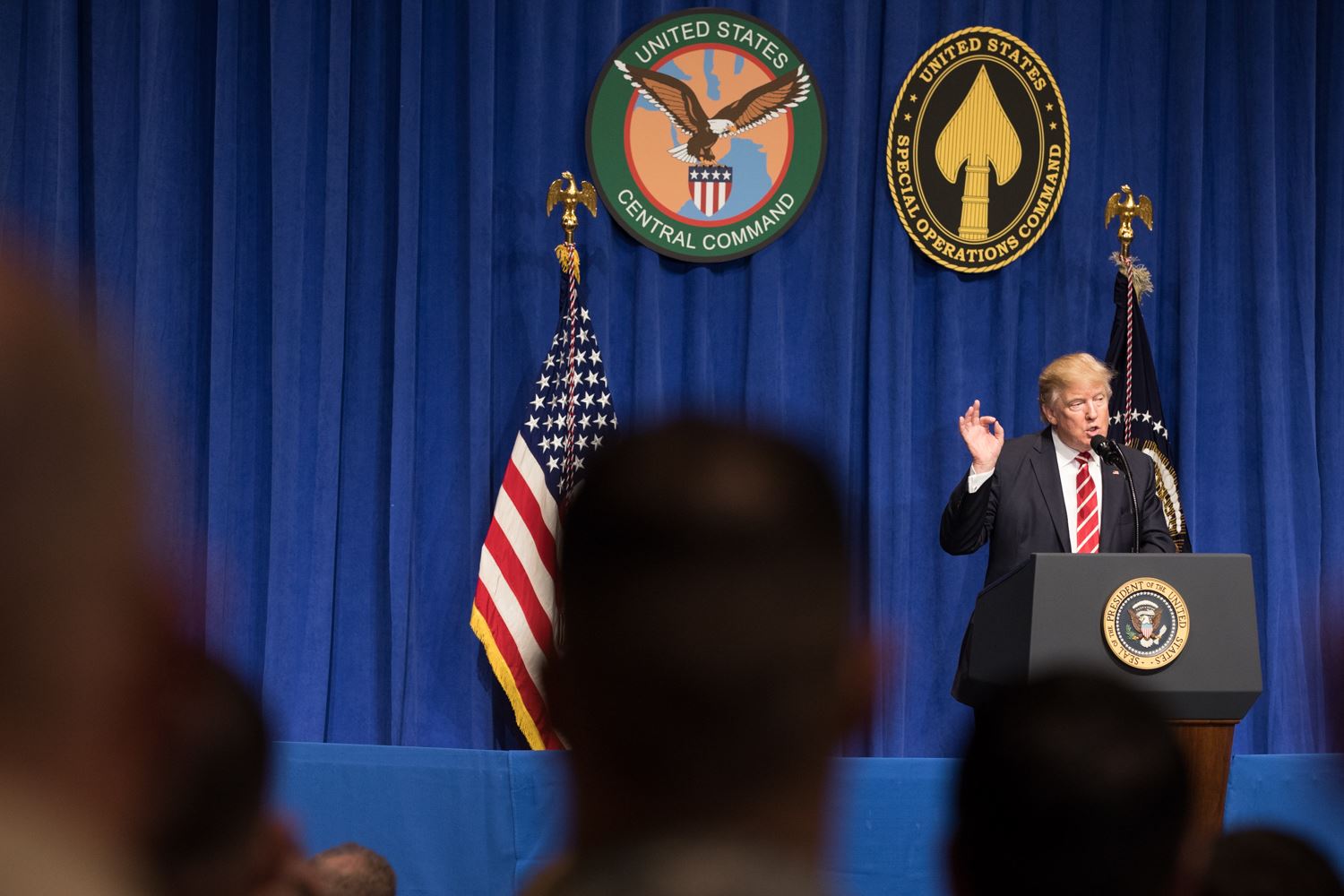Responding to Syria’s Chemical Weapons Attack: Legal Responsibility or Moral Obligations?
Assume for a moment that the Trump Administration determined, like its predecessor, that there was no clear Congressional authorization or international legal justification to support using military force against the Syrian Government or its military forces—even after the purported use of chemical weapons by the Assad regime.

Published by The Lawfare Institute
in Cooperation With

Assume for a moment that the Trump Administration determined, like its predecessor, that there was no clear Congressional authorization or international legal justification to support using military force against the Syrian Government or its military forces—even after the purported use of chemical weapons by the Assad regime. Now assume that President Trump was inclined to launch 59 Tomahawk missiles into Syria anyway.
If the Administration had been inclined to explain its actions in legal terms, the domestic analysis would have been the least challenging. While there are certainly questions that are routinely raised about the scope of the President’s Article II authority and some are questioning the propriety of its use under these circumstances, historically there has been quite a bit of deference afforded the President to determine what constitutes sufficiently important national interests such that he might undertake immediate or short-term military action, including using military force.
The international legal analysis may have been more difficult. Some international lawyers are advocating that these strikes should be explained as "not illegal" or "as lawful, or at least justified, under international law." Certain of my colleagues’ arguments might even be read to hint that the United States should assert that these strikes comported with international law even if that was not, in fact, the case. Others are more skeptical that there was an international legal basis for the strikes or are calling on the Trump Administration to explain what international legal justification existed.
To the extent that the operation comported with international law, I would agree that it is important to ensure that the international community understands that to be the case. However, if the Trump Administration was not willing to resurrect and rely upon a Responsibility to Protect (R2P) justification, embrace legal arguments that the British Government made in 2013 that force might be used to “alleviate the scale of the overwhelming humanitarian catastrophe in Syria by deterring and disrupting the further use of chemical weapons by the Syrian Regime” and that such action could be lawful “under the doctrine of humanitarian intervention,” or adopt another humanitarian intervention argument that might be applied to the facts at hand, then, from outward appearances, it would seem difficult to conclude that the Tomahawk strikes accorded with international law. And I struggle to see the benefits of making public pronouncements of legal bases that don’t align with facts at issue, particularly if such statements stand a good chance of being viewed as disingenuous.
Yet it is not clear to me that the Trump Administration is taking a position one way or the other on whether the United States conducted the Tomahawk strike in accordance with international law. (This is not unlike the case of American intervention in Kosovo during the Clinton Administration.) In particular, a recent statement by U.N. Ambassador Nikki Haley drove this point home for me. She said, “When the United Nations consistently fails in its duty to act collectively, there are times in the life of states that we are compelled to take our own action.”
We might view Ambassador Haley’s remark as falling within the highly controversial R2P framework or perhaps aligning with the British Government’s 2013 legal argument. However, it would seem odd for President Trump, based upon his past political statements and his focus on American interests, to feel compelled to intervene in the Syrian conflict in this manner because of international legal theories that are not widely accepted.
To me, the Ambassador and the Administration seem to be hinting at something else. One might construe Ambassador Haley’s remarks as suggesting that sometimes international law and its procedures do not effectively address the realities of the world and sometimes those realities are so horrific or unforgivable that the grand compromise amongst States must be forgotten for some period of time in order to remedy the situation. She suggests, I think, that factors other than law—like ethics, morality, and humanity—require action in this instance. Perhaps I’m reading too deeply into the comment. And perhaps the long-term implications of ignoring international law deserve as much restraint as some are suggesting. But it’s also worth considering the lasting impacts of dubious assertions about legal compliance, including how obviously weak arguments and disingenuous public posturing can erode the credibility of both the United States and international law itself.
I certainly do not mean to suggest that the United States, when faced with humanitarian crises or grave breaches of international law, should necessarily feel compelled to send troops into harm's way. These are critically important decisions that require careful deliberations, prudent decisions, and smart messaging.
Yet I find myself asking the following questions. Is the Administration publicly acknowledging that the law has its limits and that other factors outweighed the constraints of international law in this instance? If that is the case, was it better to have been somewhat forthright about that conclusion instead of pretending that these strikes comport with the U.S. Government’s understanding of international law?
My sense is that Ambassador Haley’s statement was designed less to reflect the Trump Administration’s understanding of the U.S. Government’s legal responsibility than its views on America’s moral obligations. And, from the perspective of a lawyer who has advised the highest levels of military and civilian officials on literally thousands of military operations, there is something to be said for a client that refuses to use the law as a shield for inaction and that willingly acknowledges that other factors weighed most heavily on his or her decisions.


.jpg?sfvrsn=407c2736_6)


